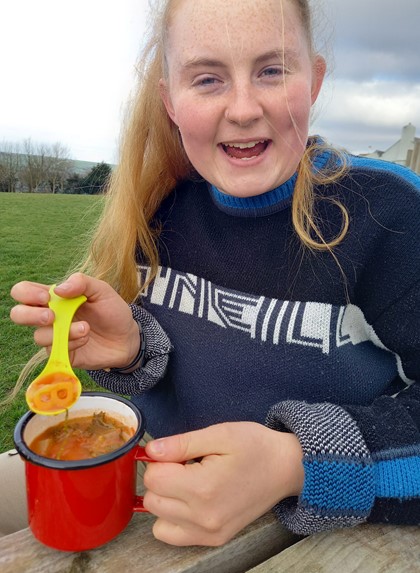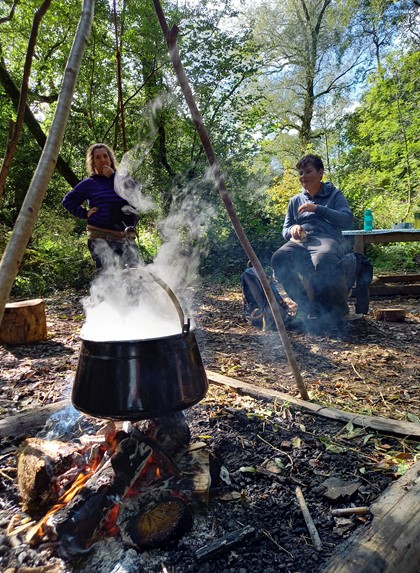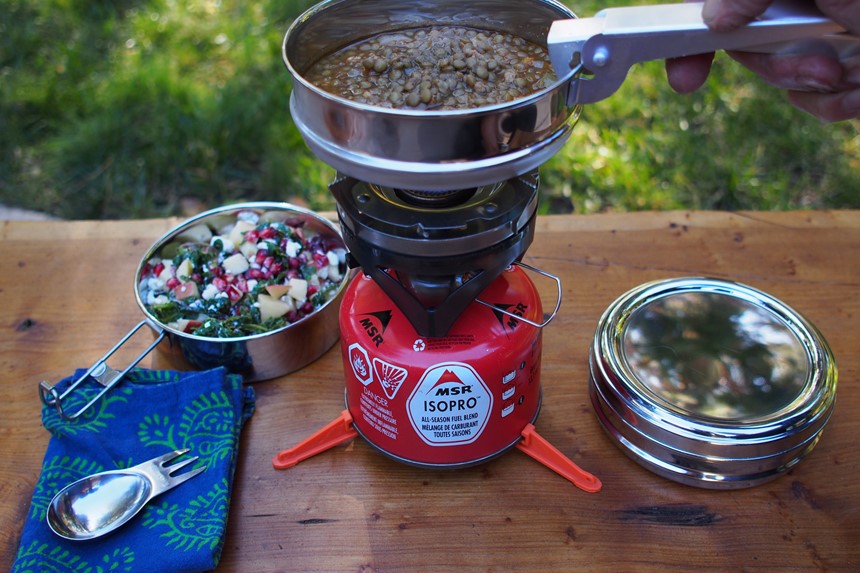
As the cost-of-living crisis bites, it’s vital we remember that the outdoors isn’t free. For many, adventure lies beyond a maze of invisible barriers. One of the most pernicious, Nik Elvy reminds us, is food.

As the cost-of-living crisis bites, it’s vital we remember that the outdoors isn’t free. For many, adventure lies beyond a maze of invisible barriers. One of the most pernicious, Nik Elvy reminds us, is food.
Last May I wrote for Adventure Uncovered about the need to stop believing the outdoors is free. With stories about the cost-of-living crisis now dominating the news, that message is more important than ever.
UK inflation is at 9.1%, the highest rate for 40 years. One in six people rely on food banks. Almost a third of children and a fifth of pensioners live in poverty, with even bleaker prospects ahead. The New Economics Foundation estimates that 10.5 million households won’t be able to afford the cost of living by next April. In a nutshell, living standards are plummeting.
Although rising energy prices are the biggest driver, food is at the heart of this crisis. Food is often seen as the most flexible element of family budgets. This means many people skip meals to cut costs. It also inspires people like Tory MP Lee Anderson to explain to those experiencing poverty how easy it is to eat cheaply, and to propose making food parcels contingent on taking cooking and budgeting courses.
Unfortunately there is too much ignorance and too little empathy around eating affordably and living under the cruel logic of the poverty premium. This is despite powerful voices like campaigner Jack Monroe, who acknowledges that miserly food budgeting “requires a military amount of planning” and “good enough mental and physical health to execute.” Not least, she says, because basic food prices have skyrocketed in recent years.
As with poverty generally, all of this plays out in the outdoors.
Images courtesy of Nik Elvy


At Curious School of the Wild, an outdoor education CIC, we are acutely aware of the barriers those with fewer resources face in enjoying the outdoors. This is why we have established default practices that account for low incomes and, in particular, food poverty. Like hobbits, for example, we offer all groups in all sessions a second breakfast. This ensures that everyone has breakfast without poverty shaming anybody, child or adult.
Food is critical to adventuring outdoors. The pleasure of food outside is enjoyed at picnics, barbeques, feasts and festivals. Many people think food always tastes better in the wild. Taking lunch in our rucksacks enables us to explore further, which is why we encourage people to eat outdoors to extend time exploring and exercising. And food keeps our bodies and brains in the best condition, helping us make good decisions. Food keeps us safe.
'Like hobbits, for example, we offer all groups in all sessions a second breakfast. This ensures that everyone has breakfast without poverty shaming anybody, child or adult.'
We have all experienced the biological and neurological effects of not eating enough when we, or someone we know, gets ‘hangry’. It is impossible to learn, run, jump, climb and socialise properly when you are hungry. And hanger is magnified outdoors. It affects decision-making, physical confidence and team cohesion. Children exploring outdoors without enough food can very quickly become a first aid risk.
Many outdoor leaders work with people who haven’t had enough food, but they may not always know it. Children and young people from low-income families are experts at poverty masking. To avoid the shame and stigma that not having something brings, they develop masterful ways of covering and deflecting.
Food is also how many young people socialise. Not having enough food, or resources for food, often means kids are excluded from any activity that requires eating. Even when an event is free or kit is provided, it is surprising how frequently food is still the hidden ticket to participation.
'Children and young people from low-income families are experts at poverty masking. To avoid the shame and stigma that not having something brings, they develop masterful ways of covering and deflecting.'
The Duke of Edinburgh Award is a celebrated opportunity for young people to adventure - particularly those without pre-existing outdoor cultural capital. Some centres are very mindful of the cost of kit, particularly on top of membership and expedition fees. Many have tents, rucksacks or stoves to borrow, and others provide ideas for finding funding for walking boots and jackets. But a centre that also provides food? That’s a rare gem indeed.
For a young person from a family experiencing poverty, the food requirement could well mean that they fall at the last hurdle. Food isn’t included in the kit list, but does represent a significant cost. Even without expensive expedition-specific meals, basic versions of expedition-style food can impose an impossibly high cost for many. Low-income households spend a much higher percentage of their overall income on food.
The mental, physical and social benefits of being outdoors are becoming more well known. It is also understood that people in poverty are disproportionately affected by ill health, loneliness and social exclusion. There is power in using the outdoors for social good, but only if we can reduce barriers to access.
Image courtesy of Sandra Harris, Unsplash

Some pain is most effectively explored or expressed through story. Working with young people during a cost-of-living crisis following a global pandemic, the parallels between traditional folk and fairy tales and the reality of many people’s lives are hard to ignore.
In the famous story, Hansel and Gretel are abandoned in the forest because their family doesn’t have enough food to go round. The children of a poor woodcutter, they are like the majority of people in poverty today in that they come from a working household.
Single mums - especially those from an ethnic minority - are being hit hardest, and are frequently going without meals so they can feed their children. This reminds me of another Brothers Grimm tale. In The Magic Porridge Pot, a young girl lives in poverty with her mother. One day she is sent into the woods to look for food, hungry and full of sorrow. She returns with a magic pot that makes an abundance of porridge on command.
'Some pain is most effectively explored or expressed through story.'
In Stone Soup, some hungry wanderers arrive in a village. But the villagers aren’t willing to share any food. So the travellers hatch a plan. Boiling a stone in water, they trick the villagers into donating ingredients to help make a pot of ‘stone soup’. A wonderful soup is eventually shared by everybody, and the villagers learn a valuable lesson in sharing food so that nobody goes hungry.
Stone Soup reminds me of food banks, through which the community shares a little of what they have so others don’t go without. But food bank donations are down since January this year. In one Plymouth food bank donations are down by nine tonnes compared with last year, just as demand has increased by 76% in the same period.
I often use outdoor cooking as a learning tool, and folk stories as a way to involve the whole group in cooking and sharing food. I remember once using the Stone Soup story to make a huge fairytale-style pot of soup over a fire, packed full of veg that we all took part in adding to the communal dish. When sharing the moral of the tale and the actual soup at the end of the session, I noticed that a handful of children were finishing their soup and others’ soup. For some in the group, the food and cooking was not for learning, developing confidence and self esteem or just having fun outdoors. It was an opportunity to eat and get a full belly.


